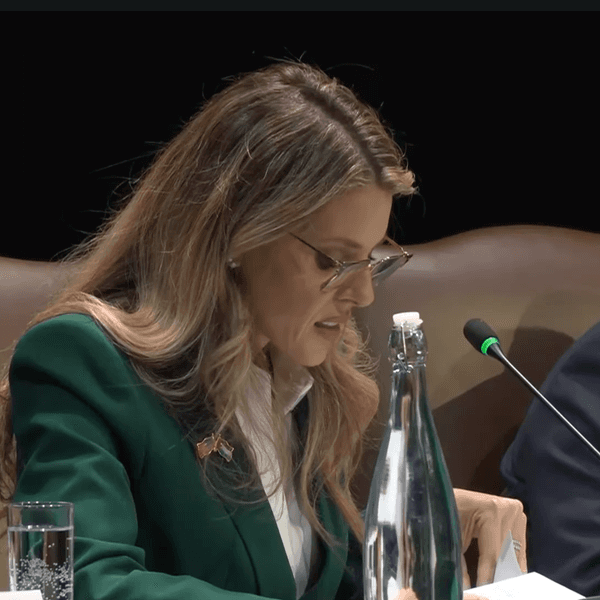The reemergence of explicit antisemitism in recent years and the spate of violent antisemitic attacks in recent weeks have left Jews in the United States and across the world making the choice between two responses.
The first is to focus on the uniqueness of Jews, to feel attacked from all sides, to call for more security, to look to Israel for support--to double down, essentially, on ethnonationalism. The second is to understand that the boundaries of whiteness have always been unstable, that at times we have found ourselves (at least, those of us who appear white) on one side of them, at times on the other. Rather than clinging to the privileges of whiteness, the only way we can stop this process is to stand in solidarity with other racialized people and to fight white supremacy in all its forms.
When I put it this bluntly, of course, this is no choice at all, at least for progressively-minded people. But finding a way to respond has nevertheless presented a challenge. The rise of white nationalism--not just in the United States but around the world--has meant that American Jews are confronting something with which a generation of us have little firsthand experience.
It is our job to say "No" to this administration's moves to define Jewishness under the pretense of combating antisemitism.
Much of our participation in the social movements of the left has been in solidarity with other marginalized people--from the much-vaunted activism during the civil rights movement to today's Palestine solidarity movement, where Jews mobilize to say that the state of Israel neither speaks nor acts for all Jews. Suddenly we--particularly those of us who have spent most of our lives in cities with large Jewish populations--are confronted with torch-bearing white nationalists chanting "Jews will not replace us."
I am myself uncomfortable at times realizing that I am, for the first time in my life, afraid for my safety not simply as a woman but as a Jew. I am used to demurring, to arguing that criticism of Israel is not antisemitic (a line I still hold).
Meanwhile, the tendency of the right today is to doublespeak about antisemitism, to claim at once to be a friend of the Jews while using antisemitic tropes and refusing to condemn white supremacist marchers.
The U.K. media, fresh from condemning Labour leader Jeremy Corbyn for refusing to quell antisemitism within his party, now turns on a newly elected Jewish Labour MP, Charlotte Nichols, for having said that "fascism has to be physically confronted as it was at Cable Street and elsewhere." There have even been a spate of attempts to call Bernie Sanders, the Democratic frontrunner with the potential to be the first Jewish president of the United States, antisemitic.
All of this is to confuse the issue and to leave Jews wondering where we can turn, to induce the feeling that rather than practicing solidarity, we should turn inward, hide, police our boundaries. This is the wrong choice but it is a choice that many, at this messy conjuncture, are making.
But in this time of borders and flames, we have another option from another Jewish tradition. The concept of doikayt, hereness, comes from the Jewish Labor Bund, an anti-Zionist, proudly diasporic socialist organization that declared wherever we are, that's our home. We fight for our homes all over the world, not to enforce borders and lock others out, but to protect everyone's right to live, peacefully, on a planet that is not burning. It is a concept that prepares us to fight climate change as well as racism, to fight for housing as a human right as well as against wars of aggression.
As the Trump Administration rattles its saber in an attempt to draw us into war with Iran, we must remember that as a diaspora people it is our job to stand not with the government but with the Iranians it detained at the border. It is our job to say "No" to this administration's moves to define Jewishness under the pretense of combating antisemitism. We must not allow the right to blame antisemitism on the left and particularly on black people. We must remember that our strength is not in our uniqueness--that way leads to treacherous tropes about Jewish genius like the ones peddled by Bret Stephens--but in our solidarity.




